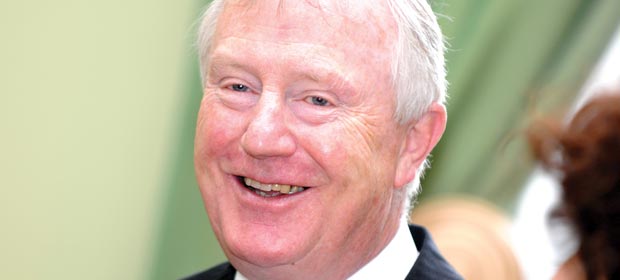Reverting to the 2006 level of funding for the health services in 2014 is bound to have profound consequences, writes Denis Doherty.
That must be the nightmarish type question confronting service managers as they ponder the consequences of another year of serious financial cuts. The Troika may be gone but one of their parting shots will linger; they want the government to reduce further the cost of our health services. We have been given a sense of the extent of the austerity the State still faces but we do not have any sense of the further cuts our health services still face beyond the coming year.

It looks like the budget of the HSE for 2014 will be about the same as the amount spent in 2006. Since then, what’s called ‘medical inflation’ has slowed down but hasn’t gone away. For example, many new high tech, high cost drugs have been authorised; new, more effective but more expensive, treatments have become available and the Fair Deal Scheme has been introduced. Standards of care and patient safety measures in many care settings have been improved. The high rate of unemployment now compared to 2006 and the fall in incomes generally create increased demands on our health services.
Would that we could rewind to 2006 and resume as if nothing had changed in the meantime. A senior politician here once said of health services reforms, ‘it’s not possible to unscramble an egg!’ He would be among the first to admit, I believe, that reverting to the 2006 level of funding in 2014 is bound to have profound consequences.
‘it’s not possible to unscramble an egg!’
In practice, the health services are forced to lead a hand to mouth type existence, focused on not exceeding annual budgets that have been declining, in real terms, since 2009. The promised reforms involving the introduction of universal health insurance and money following the patient remain little more than promises. The details that would allow a debate to take place on the type of universal health insurance that is envisaged and on what is intended in relation to money following the patient have not been communicated yet.
The severe austerity that shows no sign of relenting, where health services are concerned: the increasing inability of services to meet growing mental health needs: the increasing dependency levels where older people and people with disabilities are concerned and the financial strain that growing numbers of people are experiencing in meeting their healthcare costs is resulting in more and more people asking the same question – Good Lord, is there any end to this?
Recent years have been tough for everyone but the fact that the recovery programme had a beginning, a hard middle and an end date helped. Even at this late stage something similar as far as our health services are concerned would be welcome.
I remember well what life was like on our western seaboard during the period dealt with in John Healy’s powerful book, ‘No One Shouted Stop: Death of an Irish Town.’ There are similarities between what Charlestown experienced in the 1960s and what our health services are experiencing now. An obvious one is the loss of so many talented young healthcare professionals to other countries, at a time when we need them but can’t afford to employ them. Then there is service depopulation resulting from incentivised early retirement schemes. The result is an unsustainable reliance on a diminishing, ageing workforce.
There are valuable lessons to be learned from the Charlestown experience. We must live within financial budgets, of course, but there is a great need to also try to achieve stability, a sense of when the austerity will end and a strategy and plan of campaign that will enable our health services to evolve and develop as our economy recovers.

